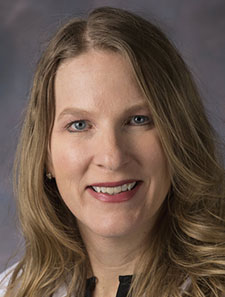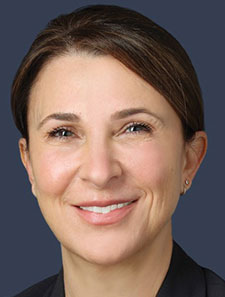 The landscape of graduate medical education (GME) is undergoing a significant transformation, driven by an increased emphasis on outcomes, accountability, standardization, and equity. In otolaryngology, these shifts have highlighted the spectrum of educational resources and faculty available in different residency programs, as well as the differences in how trainees are taught, assessed, and prepared for independent practice. While many programs provide high-quality training, the lack of a standardized curriculum can result in uneven experiences for learners, depending on where they train.
The landscape of graduate medical education (GME) is undergoing a significant transformation, driven by an increased emphasis on outcomes, accountability, standardization, and equity. In otolaryngology, these shifts have highlighted the spectrum of educational resources and faculty available in different residency programs, as well as the differences in how trainees are taught, assessed, and prepared for independent practice. While many programs provide high-quality training, the lack of a standardized curriculum can result in uneven experiences for learners, depending on where they train.
Explore This Issue
September 2025In response to these issues, the American Academy of Otolaryngology–Head and Neck Surgery (AAO–HNS) collaborated with the Otolaryngology Program Directors Organization to conceive of and operationalize the Otolaryngology Core Curriculum (OCC)—a structured, accessible, and comprehensive educational platform designed to elevate resident education across the specialty.
Historically, otolaryngology training has followed an apprenticeship model, where learning occurs primarily through clinical exposure and on-the-job teaching. While effective in many respects, this model often leads to inconsistencies. Residents may experience variable exposure to key subspecialty areas, differing amounts of structured didactic time, and uneven preparation for standardized exams. These gaps can affect residents’ confidence, their in-service scores, and their readiness for the board exam or independent practice. Structural factors such as duty hour restrictions, increasing service demands, and variations in faculty availability further widen these educational disparities. Residents in smaller or under-resourced programs may be especially vulnerable to receiving a narrower or less consistent educational experience.
Concurrently, accrediting bodies like the Accreditation Council for Graduate Medical Education (ACGME) are moving toward competency-based medical education, which requires clear definitions of the knowledge, skills, and attitudes residents must acquire—and robust mechanisms to assess progress. Without a shared curricular framework, this becomes difficult to achieve. The OCC addresses these challenges directly by offering a national standard that can be used by all otolaryngology programs to ensure their learners are mastering essential knowledge, regardless of geography or institutional resources.
Developed through the AAO–HNS with input from program directors and content experts across the specialty, the OCC is a modular, web-based curriculum that covers the breadth of otolaryngologic knowledge. By January 2026, the OCC will feature 100 core modules and several supplemental modules, each with clear learning objectives, up-to-date core content, multimedia elements (including images, podcasts, and surgical videos), references, and self-assessment quizzes. Because it is available across platforms, web-based, and self-paced, it offers flexibility for residents to engage with the material on their own schedules, an especially valuable feature in the demanding context of residency.
Beyond its rich content, the OCC is a critical tool for improving educational equity. By providing all residents—regardless of institutional prestige, faculty size, or resources—access to a common body of knowledge, the OCC levels the playing field. It ensures that every learner has the opportunity to prepare for national exams and clinical practice with the same foundational information. It also supports transparency and fairness in training and can reduce some of the disparities that have long existed between programs of varying sizes and resources.
From a programmatic standpoint, the OCC has many applications. It serves as a curricular planning tool, helping educators map local teaching efforts to the national standard. This alignment allows programs to identify gaps and redundancies in their current offerings and better meet ACGME milestones. Faculty benefit from the ability to assign OCC modules as preparatory work, reducing the burden of building lectures from scratch and enabling more interactive, case-based teaching during didactics. At the same time, residents gain greater autonomy in their learning and a clear sense of progression as they move through the material.
At our institutions, we have fully incorporated the OCC into our curriculum. At the start of each academic year, residents are oriented to the platform and expectations for completion. We use a flipped classroom model: residents complete OCC modules in advance of our weekly didactic sessions, allowing those sessions to focus on deeper learning through clinical application, case discussions, and board review. Module assignments are scaffolded by PGY level, so that junior residents focus on foundational and emergency topics, while senior residents engage with more complex, subspecialty-specific material. This approach ensures that learning is developmentally appropriate and aligned with clinical experience. We also monitor completion and quiz performance to support individualized feedback and identify areas where residents may need additional support.
While the OCC is a valuable tool today, its potential for growth is even more exciting. One promising direction is deeper integration with competency-based medical education frameworks and Entrustable Professional Activities (EPAs). Linking OCC content to EPAs would allow for a more seamless assessment of knowledge tied directly to clinical expectations. As more programs adopt the OCC, aggregated user data could be used to analyze engagement trends, identify areas where residents commonly struggle, and support adaptive learning pathways that tailor content to individual needs.
Future iterations of the OCC will include core and advanced tracts and simulation and serious game-based resources that pair with the modules. Additional interdisciplinary modules can reflect the collaborative nature of otolaryngologic care. Partnerships with specialists in radiology, speech-language pathology, neurology, or pathology could enrich the learning experience and promote a more holistic understanding of patient care. International dissemination represents another exciting opportunity. With appropriate adaptation, the OCC could be used by training programs around the world—especially in regions where specialty-specific educational resources are limited. The platform could even evolve to support micro-credentialing or CME credit, increasing its value for both residents and faculty.
Programs can expand OCC usage in additional creative ways. Senior residents might contribute to reviewing or updating modules as part of scholarly activity, enhancing engagement and fostering ownership of the educational process. Modules can be paired with simulation or objective structured clinical exams to link cognitive knowledge with procedural skill. Faculty can use OCC content for their own development, refreshing their knowledge and aligning their teaching with national standards. The OCC can also promote consistency across multi-site programs, enabling distributed faculty and residents to operate from a shared curricular base.
The OCC is a critical step forward in resident education. By establishing a national standard, it ensures that all learners have access to essential knowledge and supports programs in delivering a more coherent, efficient, and equitable curriculum. It eases faculty burden, encourages self-directed learning, and prepares residents for the demands of certification and clinical practice. As the field continues to evolve, the OCC must remain dynamic—growing in scope, functionality, and interactivity to meet the needs of tomorrow’s learners. Through continued collaboration among educators, learners, and national organizations, the OCC has the potential to reshape otolaryngology education in meaningful and enduring ways.
 Dr. Lind is a clinical professor of otolaryngology at The Ohio State University and Nationwide Children’s Hospital in Columbus, Ohio. She is the coordinator for education for the American Academy of Otolaryngology–Head and Neck Surgery and the co-director of the Otolaryngology Core Curriculum, in charge of module development.
Dr. Lind is a clinical professor of otolaryngology at The Ohio State University and Nationwide Children’s Hospital in Columbus, Ohio. She is the coordinator for education for the American Academy of Otolaryngology–Head and Neck Surgery and the co-director of the Otolaryngology Core Curriculum, in charge of module development.
 Dr. Malekzadeh is a professor of otolaryngology-head and neck surgery at Georgetown University School of Medicine, vice chair for education, and residency program director in the department of otolaryngology-head and neck surgery at MedStar Georgetown University Hospital in Washington, D.C.
Dr. Malekzadeh is a professor of otolaryngology-head and neck surgery at Georgetown University School of Medicine, vice chair for education, and residency program director in the department of otolaryngology-head and neck surgery at MedStar Georgetown University Hospital in Washington, D.C.
Leave a Reply